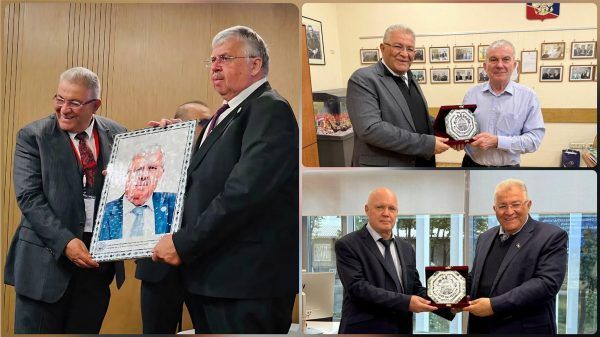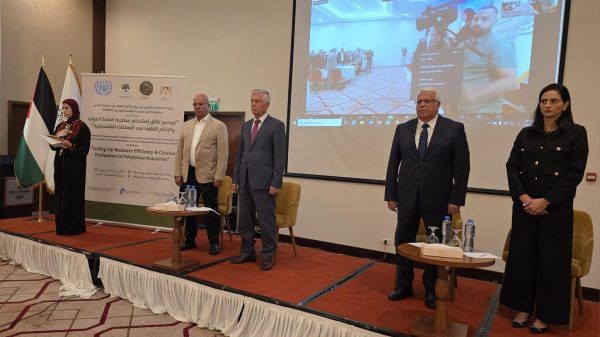We welcome the establishment of the Jerusalem Public Library, created through a project funded by the Royal Charity Organization of the Kingdom of Bahrain and implemented by UNDP’s Programme of Assistance to the Palestinian People.
There are many private library initiatives in Jerusalem, alongside school and university libraries and at least four specialized private libraries open to specific groups of users. However, since 1967, not a single Palestinian public library has been operating in Jerusalem.
After almost 50 years of longing for a public library in Jerusalem, Palestinians can now benefit from the newly established Al-Quds University Public Library (AQUPL), created through generous funding from the Royal Charity Organization – Kingdom of Bahrain and through the implementation expertise of our partner, UNDP Programme of Assistance to the Palestinian People.
Reinforcing the cultural role in Jerusalem and contributing towards promotion of the Palestinian national identity, AQUPL is a three-level historical building, located on Aqbat Rasas Street inside the Old City walls and only a two-minute walk from Damascus Gate. The building was restored and rehabilitated by UNDP specificially to be used as a public library.
AQUPL will be open to all by the end of March 2015 and is equipped with the most up-to-date computer hardware situated in a multipurpose room. AQUPL also encompasses a quiet reading room and a cafeteria with a terrace overlooking the Old City of Jerusalem. Hours of operation extend from Saturday to Wednesday 8:00 a.m. to 5:00 p.m.
AQUPL’s aims include raising awareness, spreading knowledge, supporting the cultural sector, and upholding the resilience of the local community of Jerusalem. In its restored public spaces, the Library houses a variety of book collections, digital information resources, and provides users with support in accessing the best learning tools available. AQUPL’s resources and services will be available to Palestinians living in the Old City of Jerusalem and to the local population at large – pupils, students, teachers, children, researchers, professors, journalists, professional associations, visiting researchers, graduates, and other off-campus users.
The public library has the capacity to absorb some 10,000 books and will initially house approximately 3,000 books. Almost 1,000 of these are specialized books that focus on Jerusalem’s history, archeology, and contemporary issues. The dedicated team of librarians at Hind al-Husseini College Library are in the process of indexing and cataloging this significant number of books in order to be ready for AQUPL’s upcoming inauguration in March. Some of these library professionals will also be working in the new public library.
In addition to this large collection of books in print format, AQUPL will offer a wide range of e-books and a specialized form of electronic scientific documents that are just as important as hard-copy books. The purpose of these documents, which are formatted similarly to articles in traditional printed journals, is to provide material for academic research and study. Since most commercial journals are subscription-based, or allow pay-per-view access, visitors will have full access to large electronic databases, both existing databases and those newly made available through the Public Library Project. We have facilitated general access to these databases through an in-house-developed application that is user friendly. In addition, we will soon launch a Web portal that has been developed by our university IT specialists to allow Internet access to the book catalogues (http://aqupl.alquds.edu).
AQUPL’s upcoming plans include programs and cooperative projects with various institutes that aim to encourage reading. To that end, Al-Quds University has endorsed a new, membership-based policy to allow any member to borrow up to two books at a time, thereby encouraging reading and research for all. The University also expects its public library to serve as a space to host a variety of cultural programs, including cultural events, seminars, workshops, research, lectures, and book launches and exhibitions.
To raise awareness about the new library, a number of activities have been organized in Jerusalem, including group tours. Last month, for example, the Planning and Development Unit at Al-Quds University organized a workshop focused on the importance of libraries in Jerusalem, as well as on our plans for the AQUPL.
Al-Quds University’s vision for the Library is to contribute to the conservation and preservation of cultural identity and national belonging by inspiring knowledge through books and digital information resources. We aim to spread knowledge and support the cultural sector, as well as the educational and social development of Palestinian society as expressed by Dr. Safa Nassereldin, Vice President for Jerusalem Affairs at Al-Quds University. Al-Quds University offers a vibrant learning environment to its students whilst creating a hub for creativity, exchange of ideas, freedom of expression, and innovation in research. Our vision is to continue providing students with the best possible education with the values that make for engaged citizenship, openness to new ideas, cooperative endeavors, and respect for world cultures.
"Jerusalem needs the good will and support of everyone to protect the steadfastness of its people.Sincere thanks from us to the Kingdom of Bahrain, UNDP, and all those who lend their support.







